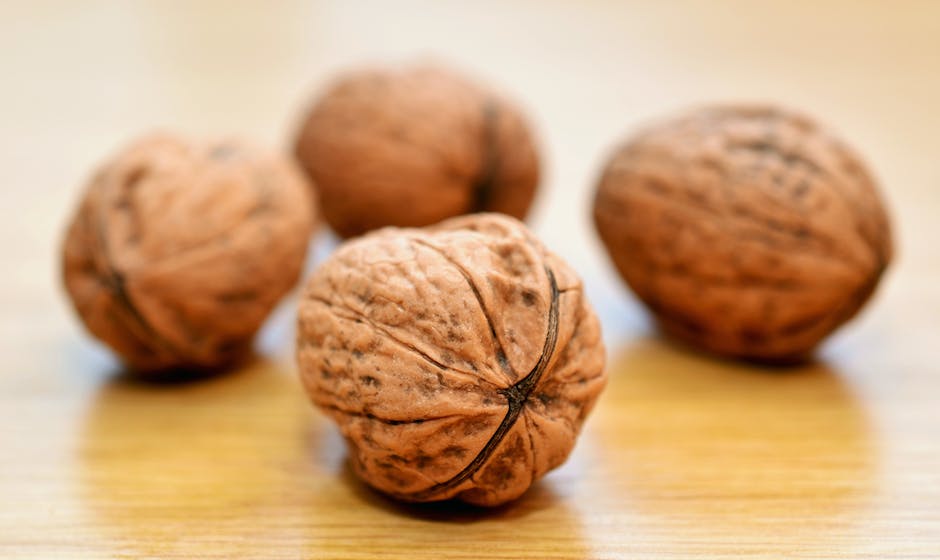Can You Eat Black Walnuts? Unveiling the Nutty Truth
When it comes to nuts, black walnuts are like the hidden gems of the forest floor. Often overshadowed by their more popular cousin, the English walnut, black walnuts are a powerhouse of flavor and nutrients. But can you eat black walnuts, and if so, how do you incorporate them into your diet? In this comprehensive guide, we’ll crack open the world of black walnuts, exploring their benefits, culinary uses, and answering the most commonly searched questions about these robust nuts.
What Are Black Walnuts?
The Unique Profile of Black Walnuts
Black walnuts (Juglans nigra) are native to North America and have a rich history dating back to indigenous cultures. They are known for their distinctive, bold flavor and are often considered a gourmet ingredient. Unlike the milder English walnuts, black walnuts have a stronger, earthier taste that can transform any dish.
Harvesting and Processing Challenges
Harvesting black walnuts is a labor-intensive process, which partly explains their higher price point. The outer husk must be removed before the nuts can be cracked, and their tough shell requires more force to break. This extra effort, however, yields a nut with a unique taste profile that many find irresistible.
Nutritional Benefits of Black Walnuts
A Nutrient-Dense Snack
Black walnuts are not just tasty; they’re also packed with nutritional benefits. They are high in protein, fiber, and essential fatty acids, particularly alpha-linolenic acid (ALA), which is a plant-based omega-3. Including black walnuts in your diet can contribute to heart health, reduce inflammation, and provide antioxidant properties.
Comparing Black Walnuts to Other Nuts
When compared to other nuts, black walnuts stand out due to their higher levels of certain nutrients, such as manganese and polyunsaturated fats. They also contain a range of vitamins and minerals that support overall health. Let’s delve into how these nutrients can impact your well-being.
How to Eat Black Walnuts
Incorporating Black Walnuts into Your Diet
Can you eat black walnuts straight from the shell? Absolutely! But there’s so much more you can do with them. Here are some creative ways to enjoy black walnuts:
- Baked Goods: Add a crunchy twist to cookies, bread, and brownies.
- Salads: Sprinkle chopped black walnuts on salads for added texture.
- Pesto: Use them in place of pine nuts for a unique take on pesto.
- Snacking: Toast them with spices for a savory treat.
Tips for Preparing Black Walnuts
Preparing black walnuts can be a bit tricky due to their hard shell. Here’s how to tackle them:
- Removing the Husk: Wear gloves to avoid staining your hands and use a sturdy tool to remove the husk.
- Cracking the Shell: Use a black walnut cracker or a heavy-duty nutcracker to access the nutmeat.
- Storing: Keep shelled nuts in an airtight container in the fridge or freezer to maintain freshness.
Common Questions About Black Walnuts
Are Black Walnuts Safe to Eat?
Yes, black walnuts are safe to eat for most people. However, if you have a nut allergy, it’s essential to consult with your doctor before trying them.
How Do Black Walnuts Differ from English Walnuts?
The main differences lie in taste, texture, and nutritional content. Black walnuts have a bolder flavor and are harder to crack, but they offer a unique set of health benefits.
Can You Substitute Black Walnuts for English Walnuts in Recipes?
You can substitute black walnuts for English walnuts in most recipes, but expect a more pronounced nutty flavor. It’s best to start with a smaller quantity and adjust to taste.
Conclusion: Embracing the Bold Flavor of Black Walnuts
In conclusion, not only can you eat black walnuts, but doing so can add a delightful twist to your culinary adventures while boosting your nutrient intake. Whether you’re a gourmet cook looking to elevate your dishes or someone seeking healthy snack alternatives, black walnuts are a versatile and nutritious choice. So next time you come across these robust nuts, don’t hesitate to give them a try and discover the rich flavors they have to offer.


